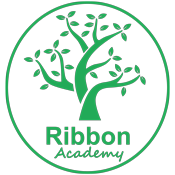Geography at Ribbon aims to inspire pupil curiosity about their world and its people. It is important that our curriculum offers our children the knowledge and skills that they require to understand the geographical implications of everyday life. Our provision of outdoor learning and geographical enquiry supplements yet compliments learning in class to provide essential experience of our local geography, providing purpose for learning. We want our pupils to: ·
- know many and varied places, the people who live there and natural and human environments and features
- develop a deep understanding of the key physical and human processes of the world and how these are interlinked
- become aware of and understand geographical changes and the cause and effect of these
- interpret a range of sources and communicate geographical information using correct vocabulary in written work, through maps and numerical skills
- build contextual knowledge about diverse places, people and resources
- gain experiences of fieldwork that deepens the children’s experiences of geographical process.
Geography is one of the most relevant subjects our children can learn. Barely a day goes by when geography isn’t in the news – earthquakes, hurricanes, floods, natural disasters, war and of course, climate change.
Our Geography Overview outlines the essential details to ensure full coverage of the National Curriculum whilst providing our teachers with the tools required to support the development of inquisitive geographers. These details include: –
- progression of teaching topics
- identification of geographical skills to teach, learn and practise
- prioritised knowledge and facts to know, supporting an improved conceptual understanding of the world
Our coherent, planned curriculum has purposefully been designed supporting progressive learning through the year groups. Geography learning begins with developing a strong knowledge of personal localities and local knowledge in EYES and Year 1 before expanding to knowledge of the wider locality of the UK, Europe and Globally – to support the development of comparative geography. Each unit is designed to build on previous knowledge and skills taught in geography and, where relevant, link to other curriculum areas to ensure connective learning supports that transfer of information to knowledge. It is important at Ribbon that when learning and practising geography children are able to articulate what geography is and can clearly differentiate between the skills geographers require from the geography knowledge that they know and have retained, whilst broadening their vocabulary.
Supplementary, fieldwork is an integral part of the geography curriculum; no other subject includes the necessity for fieldwork in National Curriculum guidelines. At Ribbon we ensure that Educational visits and fieldwork are undertaken whenever possible to offer pupils unique opportunities to experience geography for themselves and develop a wide range of skills.

